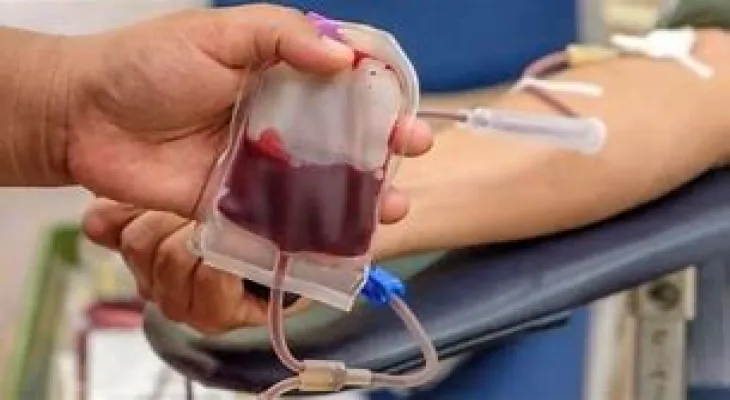Search here
Newspaper
Search here

Arab Canada News
News

Published: October 13, 2022
Alberta doctors are sounding the alarm about a dangerous trend - feeding misinformation - that can lead to loss of lives. Dr. Stephanie Cooper, an obstetrician specializing in high-risk deliveries at the Foothills Medical Centre, said a patient recently refused to consent to a blood transfusion if it came from a donor who received the COVID-19 vaccine. Experts say this is a worrying trend driven by misinformation.
"I regularly see people suffering from severe bleeding due to childbirth. For me, the idea that this exists is somewhat puzzling." This came up in a routine conversation while she was advising the patient before a C-section surgery. The patient ultimately did not need a blood transfusion. Shocked by what she encountered, Cooper shared her experience on Twitter and was flooded with responses, including from other healthcare providers who reached out with similar stories. She said, "I am very concerned about this," noting that blood supplies in Canada do not record the COVID vaccination status of donors.
"There is no option to receive COVID-vaccine-negative blood. So by blood loss, it means you will die." This is not an isolated incident in Alberta. Dr. Dave Sidhu, the medical officer for southern Alberta for transfusion medicine and organ transplantation, said: "We see it once or twice a month at this stage. The concern, of course, is that these requests may increase." It includes parents of sick children.
Sidhu said: "We see a few, certainly in our bone marrow transplant patients in particular. You have to remember these children are immunocompromised, and there is always more sensitivity around these patients, and some may be very fragile." He is also an associate professor in the Cumming School of Medicine at the University of Calgary.
"Any warnings or questions about that, we encourage our parents to raise them." According to Sidhu, requests for so-called directed blood donation, taken from an unvaccinated parent or legal guardian, involve a number of risks and have not been accommodated. He said that, so far, parents have agreed to proceed after he spoke with them. While some adults have ultimately refused blood transfusions.
Doctors have been able to treat them through other means. He said, "The real concern is situations where blood is needed and it is life and limbs." "There is currently no medical or scientific evidence indicating that there are genetic changes in people due to mRNA vaccines or any other safety issues related to blood from either vaccinated or unvaccinated donors." According to Timothy Caulfield, Canada Research Chair in Health Law and Policy at the University of Alberta, these situations are becoming increasingly common.
He said, "This is not only happening in Canada but actually around the world... This is a really good example of behavior - and it is a direct result of misinformation spreading." "It is based on the idea that either the blood is contaminated, the blood will give them COVID, and they believe the risks associated with COVID vaccines will have some negative effects on them.
The misinformation related to COVID vaccines and the fear of blood as a result." Caulfield said adults who are eligible have the right to refuse treatment even if the decision could harm them. "This really highlights, I think, how powerful misinformation is.
It can have a real impact in a way that can be dangerous." There is no evidence supporting these concerns." Canadian Blood Services, which has a full page on its website dedicated to this issue, said patient health is its top priority.
A spokesperson for the Canadian Ministry of Health said in an emailed statement: "The Canadian Ministry of Health has neither recommended nor imposed any restrictions on the use of approved COVID-19 vaccines and blood donation."
"This is because the blood of donors who received inactivated vaccines does not pose a risk to patients receiving blood transfusions." Canadian Blood Services explains on its website that inactivated vaccines "do not contain infectious bacteria, viruses, or other pathogens that can replicate in vaccine recipients or cause infection." Other vaccines, including those protecting against tetanus, pertussis, and influenza, do not affect eligibility for blood donation.
"These claims are unproven and not supported by the safety studies required for regulatory approval of these vaccines, or by ongoing Canadian and international vaccine and blood safety monitoring," the site states.
Edited by: Yusra Bamotraf
Comments